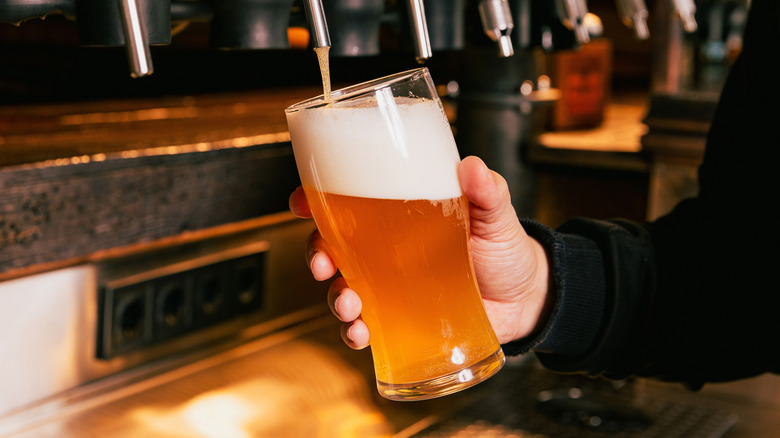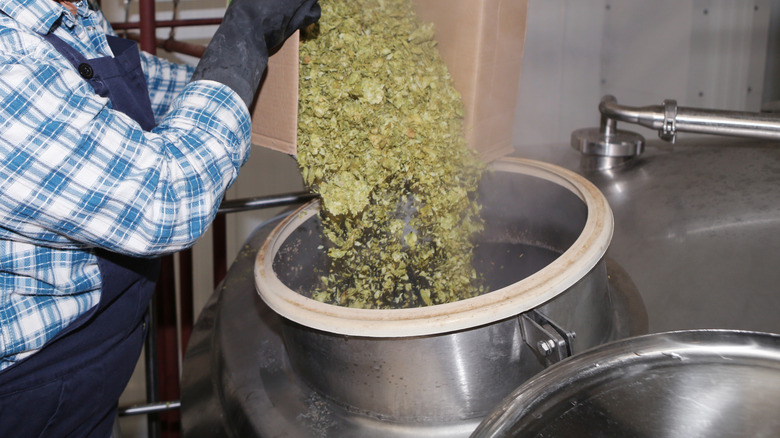What Actually Gives Beer Its Bitterness?
A single sip of beer can provide an incredible range of flavors, from malty to sweet to nutty and sometimes even sour. But no matter which type of brew you're enjoying, there's almost always at least a hint of bitterness. This is a crucial part of crafting just about every style of beer, and not just to balance out the taste of other ingredients. It's all thanks to one fundamental component: hops.
Hops are the common name for the flowers of the Humulus lupulus plant. The cone-shaped flowers are clipped from the plant, processed, and then dried to preserve and concentrate their flavor. For hundreds of years, brewers have added them to their concoctions not just as a flavor enhancer and contrast for the grain's sweetness but also because of their natural ability to keep beer fresher longer. (Speaking of freshness, you can even eat raw hops, adding them to salads or tossing some in a pot to help flavor soups or stews.)
It's vital to note that while hops are most beers' primary source of bitterness, they're not the only way to develop bitter flavors. Some recipes use additions like juniper, spruce tips, or orange pith to provide subtly different bitterness from typical hops.
Different hops, different bitterness
Though many casual beer drinkers likely associate hops with notably bitter styles like IPAs, hops are present in virtually every commercially produced beer available today. Whether or not they make a significant bitter impact on the flavor and aroma of the beer depends on the amount used and when they're added during brewing.
So-called bittering hops are used early in the process, allowing their alpha acids to infuse into the mix, thus providing the required bitterness. These are what help the drink develop its eventual IBU rating (or International Bitterness Units, an acronym worth knowing before taking another sip of beer). Meanwhile, aroma hops are added just a short time before finishing the boiling stage, as the crucial compounds evaporate if heated for too long. They help provide the familiar piney, citrusy smells and tastes of bitter beers.
It's easy to see how versatile hops can be — they play an irreplaceable bittering role in countless brews (including those on our diverse list of the 40 best beers you should be drinking). No matter which style you prefer, beer lovers everywhere can be thankful for this humble flower.

